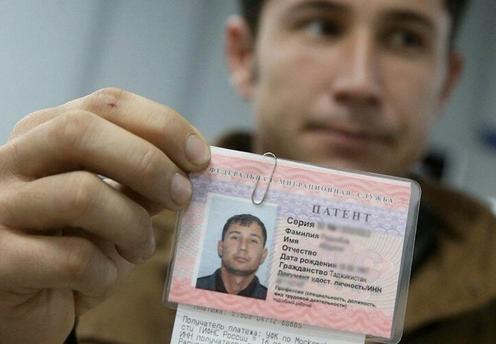Starting January 1, 2026, the cost of a work patent for migrant workers in Moscow will increase from 8,900 rubles ($111) to 10,000 rubles ($125) per month, according to the website of the Moscow City Duma.
Commenting on the decision, Deputy Head of the Department of Economic Policy and Development of Moscow Darya Murchenko said that the increase will help align the tax burden on migrants with that of Russian citizens.
The explanatory note to the bill approved by the City Duma states that the coefficient reflecting regional labor market conditions in Moscow is currently 2.8592, which established the tariff for a work permit for foreigners at 8,900 rubles. Considering the rise in average wages in sectors traditionally employing migrant workers, the coefficient will increase to 2.9323. As a result, the cost of the patent will rise to 10,000 rubles.
At the same time, the monthly cost of work patents—which essentially serve as advance payments for personal income tax (PIT) for foreigners working in Russia—will also increase in other regions. In Kamchatka Krai, the amount will rise from 9,000 rubles ($112) to 13,800 rubles ($172); in Novosibirsk Oblast, to 10,860 rubles ($135); and in Saint Petersburg and Leningrad Oblast, from 6,000 rubles ($75) to 8,000 rubles ($100). The price for the right to work in Krasnodar Krai will increase most significantly, by 59%, from 17,000 rubles ($212) to 27,000 rubles ($337).
In addition to paying for the patent, migrants must compile a full set of documents, undergo a medical examination, fingerprinting, and other procedures, which cost approximately 30,000 rubles ($375).
A work patent is required for migrants from visa-free countries to work in Russia (except for citizens of Eurasian Economic Union countries, including Kyrgyzstan and Kazakhstan). The document is valid only in the specific region and occupation indicated. The cost is set individually by each federal subject.










